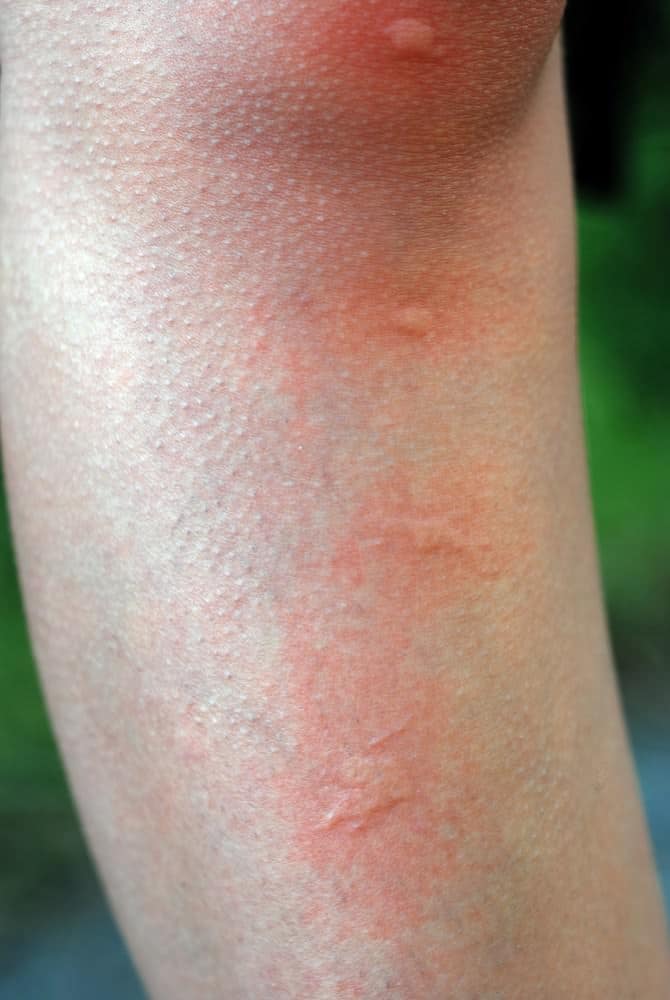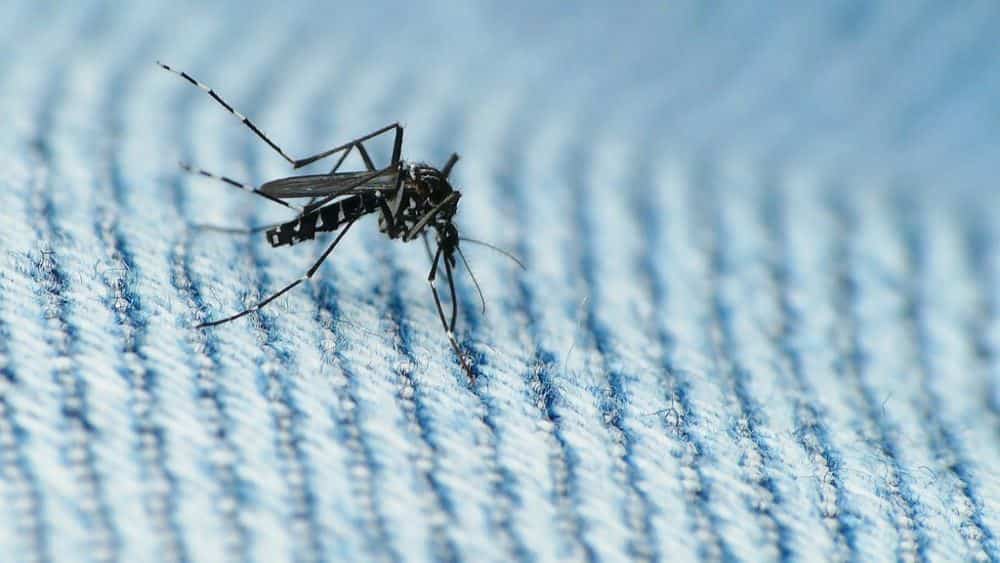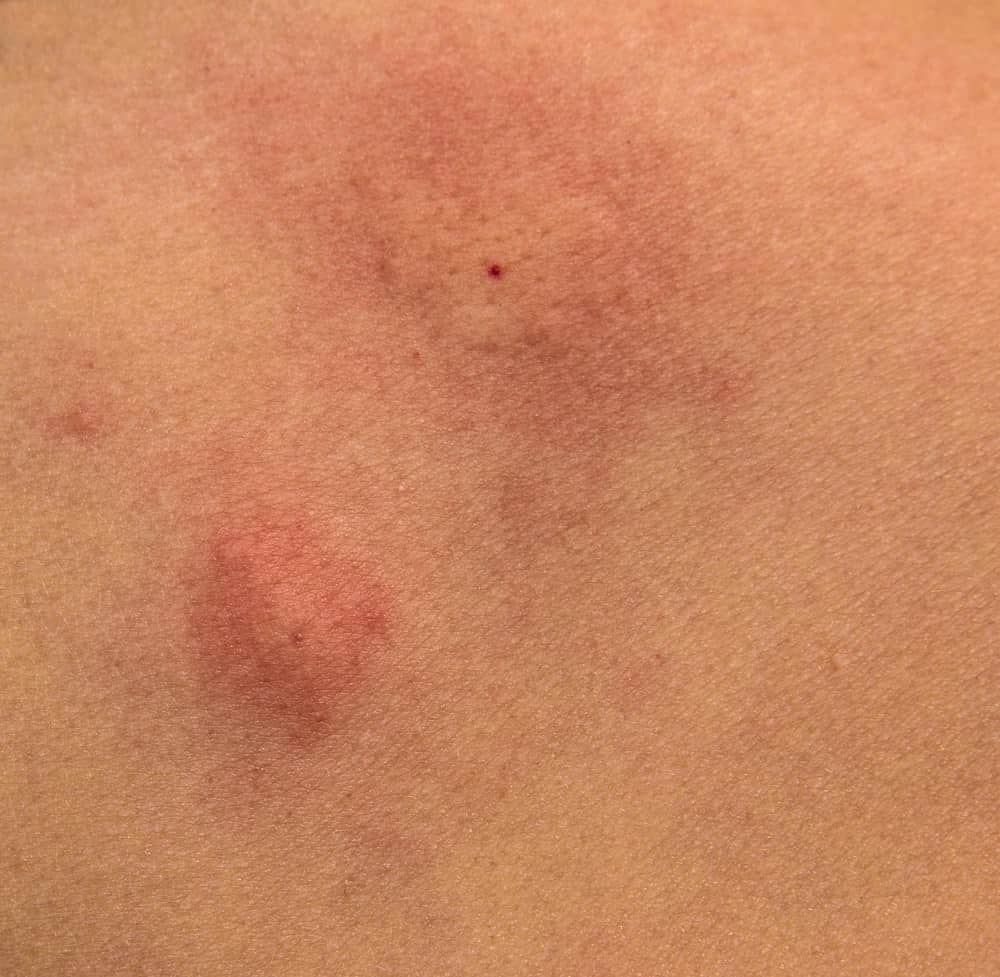Allergic Reactions To Mosquito Bites
For most people, getting a mosquito bite means enduring a couple of hours of itching. However, others aren’t so lucky. Many people are actually allergic to mosquito bites. For these people, summers can be a living hell since they have to be extra careful when going outside.
In this article, we’ll look at what actually happens when you’re allergic to mosquito bites. We’ll also cover some steps to take if you have an allergy to these pests, and what you can do to prevent getting bitten.
What Is a Mosquito Bite Allergy?
A mosquito bite allergy is a potentially dangerous immune system response to mosquito saliva. This response is above and beyond what most people experience after being bitten.
Before you run down to the local drugstore to buy antihistamines, here’s something you need to know: everyone is allergic to mosquito bites to some degree.
The reason why I say this is because when mosquitoes bite, they release some saliva into our blood. The saliva consists of different chemicals which act as an anticoagulant so our blood won’t clot.
The chemicals and proteins in the saliva are considered foreign by our body. The body sends out a rescue team to fix the damage and get rid of the intruder. It does this by releasing histamine which carries white blood cells to the bitten zone. The histamine increases the size of the blood vessels in the affected area to aid healing. In the process, histamine also causes the itching.
Some lucky people in the world have developed an immunity to mosquitoes and their itchy effects. These people do not have an immune response to bites. Conversely, others may develop severe reactions to mosquito bites, sometimes leaving them in life-or-death situations.
The most common mosquito bite allergy is called skeeter syndrome. This syndrome is mostly seen in children, because the effects tend to be more extreme in the young.
Our immune system is an amazing and complex system. However, sometimes it can go overboard from the smallest things, in this case, a tiny mosquito bite. When you’re allergic to mosquitoes, the immune system will overreact, meaning it not only sends out a rescue team, but the entire S.W.A.T team too.
Skeeter syndrome varies in severity, depending on an individual’s immune response to the components found in mosquito saliva. Because of this, there is no single uniform reaction to bites. In some cases, the aggressive immune response to bites is life-saving. In others, it can be life-threatening.
How to Tell If You’re Allergic to Mosquito Bites
If you have a mosquito allergy, you will experience a stronger, and possibly more dangerous, reaction to bites than other people do. You can’t figure out by yourself if you have an allergy, you will need to see a doctor to be diagnosed.
Try to keep in mind that everyone has some type of reaction to mosquito bites. You might be experiencing more itching than your friend, but that doesn’t necessarily mean you’re in a life-threatening position.

Getting checked out if you suspect an allergy is important. The doctor can do a series of skin tests to see if you’re allergic to the substances contained in mosquito saliva. They will also be able to gauge how severe the reactions might be.
A regular mosquito bite is usually less than half an inch in size, red or pink in color, and slightly itchy. A more severe reaction will see a hard, swollen bump which is usually a darker red. Not only will the bump be itchy, but it might also burn or sting.
The bump may grow to the size of a quarter, and can lead to other signs and symptoms, such as:
- Lesions – may result in secondary skin lesions if the site is excessively scratched.
- Hives – usually around the site of the bite.
- Lymphangitis – an infection of the lymphatic system.
- Bruises – some people will experience bruising around the area of the bite.
Anaphylaxis
Anaphylaxis is a life-threatening reaction to a bite, sting, or other recognised allergy. Out of all insects, anaphylaxis is more commonly associated with bees and wasps. People rarely go into anaphylactic shock after a mosquito bite.
In anaphylaxis, hives spread across the body. The lips and tongue swell up and the person may struggle to breathe. Wheezing and coughing is very common as the airway gets tighter. Other symptoms include:
- Hypotension – low blood pressure, making you feel dizzy and fatigued. Can lead to fainting.
- Weak pulse – sometimes changes to a rapid pulse.
- Nausea – the victim may vomit or experience diarrhea.
As a person goes into anaphylactic shock, they need an injection of epinephrine, a neurotransmitter, as quickly as possible. People who are aware that they are anaphylactic should always carry an epinephrine auto-injector in case they need it.
Medical intervention is always required following a severe anaphylactic reaction.
Who Is at Risk?
Anaphylaxis is a serious condition to be in. It is, however, not very common across the whole population. The following are risk factors for this kind of reaction:
- Allergies – if you’re already allergic to certain insect bites or foods, your chances of becoming anaphylactic are slightly increased.
- Asthma – having this condition will increase your risk.
- Heart diseases – this weakens your immune system, making the chances of anaphylaxis higher.
- Mastocytosis – an abnormal mass of white blood cells in affected areas.
The diagnosis of anaphylaxis is complicated. The best thing to do, if you suspect you or your child is anaphylactic, is to see a specialist in immunology and allergies. The doctor might prescribe an epinephrine auto-injector which should be carried at all times.
What to Do If You’re Allergic and Get Bitten by a Mosquito
Firstly, remain calm. Rising blood pressure induced by stress can cause the reaction to progress faster. Try to bear in mind that not all bites will result in a dangerous situation and your reactions could vary in severity.
Next, brush off the criminal. The faster you catch the culprit, the less time she has to inject her intruding saliva. The next thing you should do is wash the area with cold water and soap.
A good initial action would be to apply something cold. Either a cold compress or a bag of frozen vegetables will do just fine. The cold temperature will help calm the histamines and lessen the side effects. It will also help to prevent any excess swelling and soothe itching.
If you start to feel severe reactions, such as dizziness or nausea, it is crucial you get to the emergency room as quickly as possible. You might not be going into anaphylactic shock, but skeeter syndrome can result in symptoms which require medical help.
If you have been prescribed and supplied with an EpiPen (an epinephrine auto-injector) and you have it with you, inject yourself when symptoms progress to hives and/or difficulty breathing. Or even beforehand if you are instructed to do so by your doctor.
If it is your child who is having an allergic reaction to a mosquito bite, get him or her to the care of medical professionals right away. Children often experience stronger side effects to mosquito bites. This is because their small bodies aren’t as used to foreign substances as adults. A rash around the bite, or hives all over the body, could indicate a dangerous reaction.
Complications
An allergy towards anything should always be taken seriously. Reactions can be severe and unpredictable. You might only have mild responses to a mosquito bite at the beginning of the summer, then toward the end of the season, you might begin to experience critical reactions.
Some people experience severe itching, redness, maybe even dizziness. Others may have complications near the bite site. If left untreated, you might notice some of the following:
- Swelling – excessive swelling of not only the bite, but the area around it.
- Welts – red bumps on the skin, often associated with hives.
- Blisters – fluid-filled blisters are not uncommon, but are highly uncomfortable.
- Impetigo – further infection around the bite area.
More serious potential complications include sepsis and biphasic anaphylaxis. Let’s take a look at those now.
Sepsis
Sepsis is a frightening, life-threatening illness caused by the body when it’s trying to fight off an infection.
As I explained previously, a dangerous allergic reaction occurs when the body’s reaction to a foreign substance is too extreme. For sepsis to occur, the immune system has overdone it by miles, going into overdrive as it tries to fight off the infection caused by the mosquito.
The immune system will release chemicals into the bloodstream, sometimes causing inflammation throughout the body. As scary as sepsis is, it doesn’t always require medical attention. However, if the body goes into septic shock, it is an emergency which should not be taken lightly.
Sepsis can be caused by an infected insect bite, another reason why it is so important not to scratch bites. Broken skin can lead to bleeding, which could lead to further infection, increasing the risk of sepsis developing.
There are a few signs and symptoms to look out for, these include:
- Fever – or on rare occasions, a lower-than-normal body temperature.
- Infection – if you already have an infection, you might also have sepsis.
- High breathing rate – above 20 breaths per minute.
- Increased heart rate – over 90 beats per minute.
- Decreased urination – usually occurs after or during infection.
- Discolored skin – the sufferer may notice patches of discolored skin.
- Chills – if the body temperature suddenly drops.
- Weakness – as the body goes into shock, the blood flow to the organs reduces, making sufferers weak.
Biphasic Anaphylaxis
If you’re anaphylactic and have a severe reaction to a mosquito bite, you will most likely use your auto-injector to stop the reaction. Doing this stops the severity of the allergic reaction, but that doesn’t mean you’re entirely out of the woods yet.
It is always vital that you get yourself to the emergency room as soon as possible for further examination. Symptoms can recur even after the victim seems to have successfully recovered. Biphasic anaphylaxis, a recurrence of symptoms, can occur without exposure to an allergen.
This recurrence can be milder than the initial reaction, or stronger. Biphasic anaphylaxis has been reported 72 hours after hospital discharge. The most common observation period after anaphylaxis is four to six hours. This doesn’t seem quite enough considering the fact that symptoms, mild or severe, can recur days later.
Medical professionals are able, to some extent, to diagnose those who are more likely to have recurring symptoms. Unfortunately, just as the severity of anaphylaxis is unpredictable, so are the biphasic symptoms.
If you’re discharged from an emergency room after an anaphylactic reaction, make sure you are not alone. Have a member of your family or a friend you trust observe you for at least 48 hours after discharge.
Preventing Mosquito Bites
Preventing mosquito bites is far better than going through the pain and complications which allergies can lead to. There are a number of ways to avoid mosquito bites. Here are some of the things I recommend:
Make Your Yard a Mosquito-Free Zone
One of the most effective ways to get rid of mosquitoes in your yard is to remove any item that can hold water. Turning over buckets, pots, kid’s pools, and other objects will prevent rainwater from accumulating. Female mosquitoes don’t need more than an inch of water to lay eggs, so you have to be thorough.
Keeping your yard nice and tidy is key to living a mosquito-free life. Trimmed bushes and trees will give the pests a little less room to hide. Cutting the lawn and getting rid of foliage will also help.
Dispose of any fallen leaves, twigs and other waste that might turn into a haven for the mosquitoes. They tend to like areas that are warm and moist, where they will rest or even hibernate in.
I highly recommend buying a fogger, especially if your yard is large. Fogging with insecticides once a week can help keep the pests away. It will also help to prevent them from laying new eggs.
Protect Yourself
Before wandering out into mosquito territory, make sure you are wearing a good repellent. I recommend using one with the ingredient, DEET. This ingredient will keep you protected for a few hours at a time, a higher concentration will last you all day.
If you’re not into harsh chemicals, don’t fret, there are lots of other natural ingredients available.
Citronella is one of the best natural mosquito repellents. Mosquitoes absolutely hate the lemony scent. The citronella oil also covers up our natural body odor, making it near impossible for the mosquitoes to find us. Oil of lemon eucalyptus is also very effective.
Choose to wear clothes that cover your entire body if possible, this makes it harder for the mosquitoes to find exposed skin. Pay attention to your ankles, these pests are known ankle biters. Use protective clothing in tandem with repellents to minimize potential bites.
If you’re out camping, try to avoid setting up camp near river banks or lake edges, these bodies of water always attract a higher number of mosquitoes than water-free areas.
It’s always important to protect yourself from these flying insects, but if you’re allergic to mosquito bites, it can also be life-saving.



